
Has Queensland become an unexpected champion of change during the SSM debate?
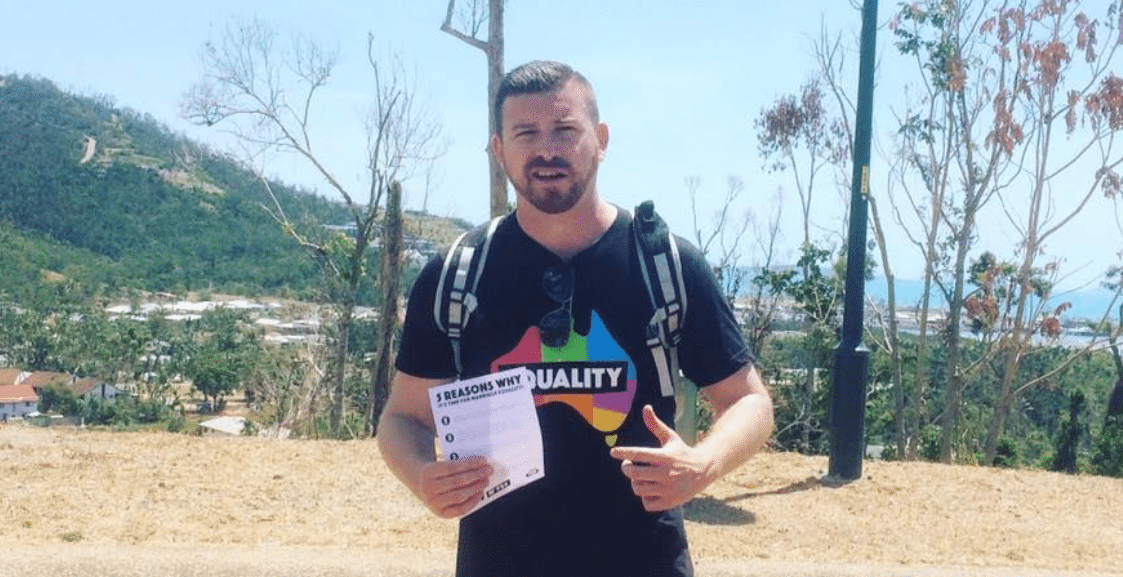
Think Queensland and images of palm trees, pineapples, and Pauline come to mind.
A tropical paradise filled with rednecks, XXXX beer, and natural disasters.
It’s easy to caricature Australia’s northern state, particularly when politicians like Bob Katter mention North Queenslanders ‘being ripped apart by crocodiles’ in the same breath as marriage equality.
But it’s on this very issue that Queensland is leading the way on progressive change.
I know that may sound ridiculous to some, but the marriage survey results make for interesting analysis.
On the surface, Queensland may have only been the fifth highest state or territory to vote yes but that stat doesn’t tell the full story.
Flashback to September this year and the ABC’s Vote Compass released an electorate by electorate break down on views around same-sex marriage, and for Queensland the results weren’t that pretty.
In Queensland, 13 of the 30 electorates were against same-sex marriage, with seven of those in the lowest ten across the country.
A result that, let’s be honest, didn’t surprise or shock anyone. It fitted the narrative of a socially conservative state not always welcome of change (unless it comes in the form of a wacky politician or two).
I read these numbers sitting at Brisbane airport waiting to board a flight to my home town in the North Queensland seat of Dawson. One of the very electorates against same-sex marriage.
I was travelling there to campaign for the Yes vote and I must admit, the results made me a little nervous.
However, in the end I had nothing to worry about. With the help of my family we walked the streets of our small town in equality shirts with not a homophobic look, shout from a ute, or insult in sight. In fact it was all positive, and it gave me hope, that maybe, just maybe things could change.
And change they did….
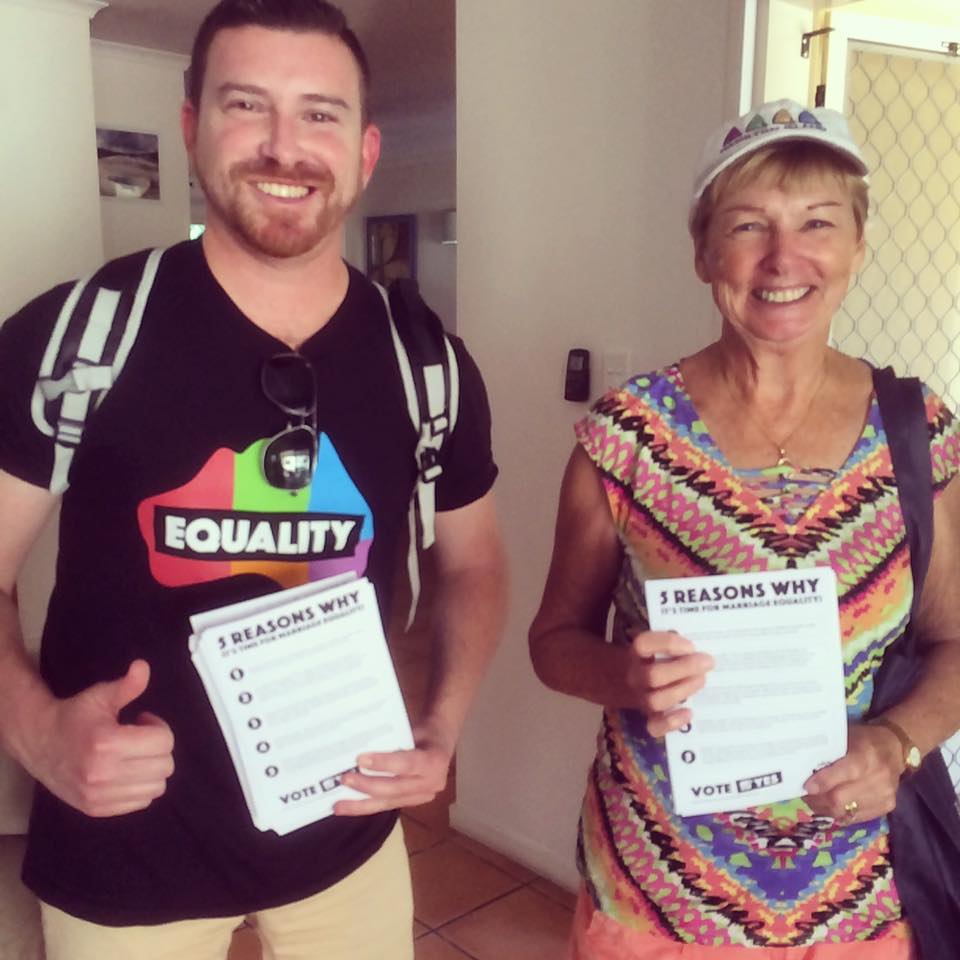
When the results came out that glorious day on Wednesday 15 November 2017, only three electorates in Queensland voted No, only one was in the lowest ten, and every single electorate saw an increase in support compared to the Vote Compass result.
The average increase in each electorate was 7.6% with the highest being a 12% rise in Peter Dutton’s seat of Dickson.
Brisbane was the largest city in Australia to have all their electorates vote Yes. A feat even the most liveable city in the world, Melbourne, could not claim. Oh and we won the State of Origin on this one again. Sorry New South Wales.
Most importantly to me, the seat of Dawson voted 55 per cent Yes, giving local MP George Christensen (who my National voting father once threatened to tip a beer over) a dilemma to ponder.
But did these Vote Compass results have any merit in the first place? Well the results speak for themselves.
They predicted a low or No vote for the western suburbs of Sydney, a win across all electorates in Western Australia, South Australia, Northern Territory, and the Australian Capital Territory, and of those who declared a position, 62.5 per cent in support of same-sex marriage. Almost spot on with the actual result.
So why the huge change in Queensland? Let’s not fall into the Blaxland trap and make simplistic assumptions. From an outside observer it appeared the Yes versus No marriage equality battleground took place between the inner and outer suburbs of our two largest cities.
Living in Melbourne exposed me to the campaign every day and the ugly nature of it all, while during my time in Queensland it was far less evident.
Of course there was campaigning and ugliness, however it didn’t appear to be all consuming like it was down south. And in North Queensland it virtually didn’t exist at all. A ‘fair go’ and ‘live and let live’ approach appeared to be the attitude.
Couple that with a growing progress, reputation, and global outlook (including Brisbane being named by Lonely Planet as Australia’s hippest city in 2014) and it may go some way in explaining this extraordinary increase in support.
Let’s also not forget that Queensland has been Labor led in 25 of the last 28 years, it is also the state of Warren Entsch MP, of Benjamin Law, Bec Shaw, Shelley Argent, and countless other LGBTIQ heroes and allies that have made so much difference before and after this campaign.
And it was the state of Tyrone Unsworth, the young teen, who found life too tough to continue. A story that shocked the nation, and no doubt, fellow Queenslanders.
So ahead of a state election which may justify all those old stereotypes, have faith that change is happening more rapidly than anywhere else, and as the great Bill Heslop of Porpoise Spit once said, “you can’t stop progress”.




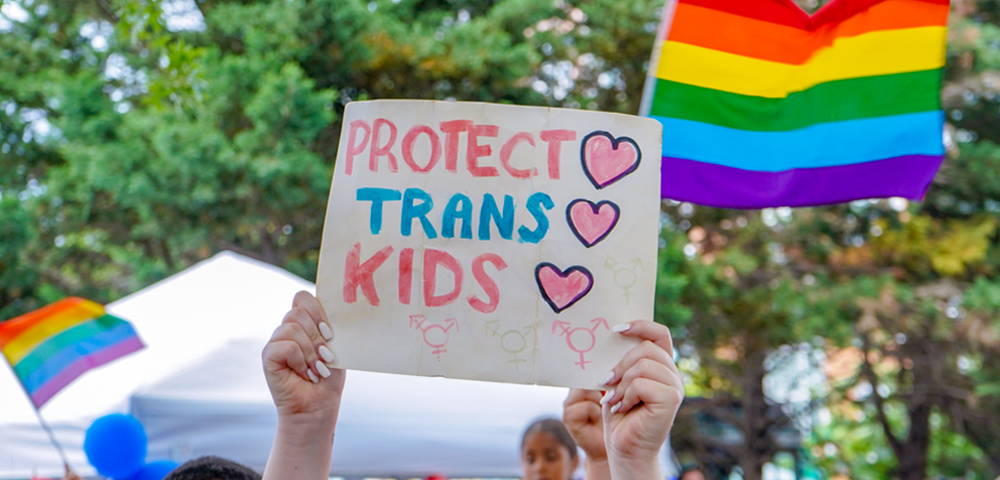
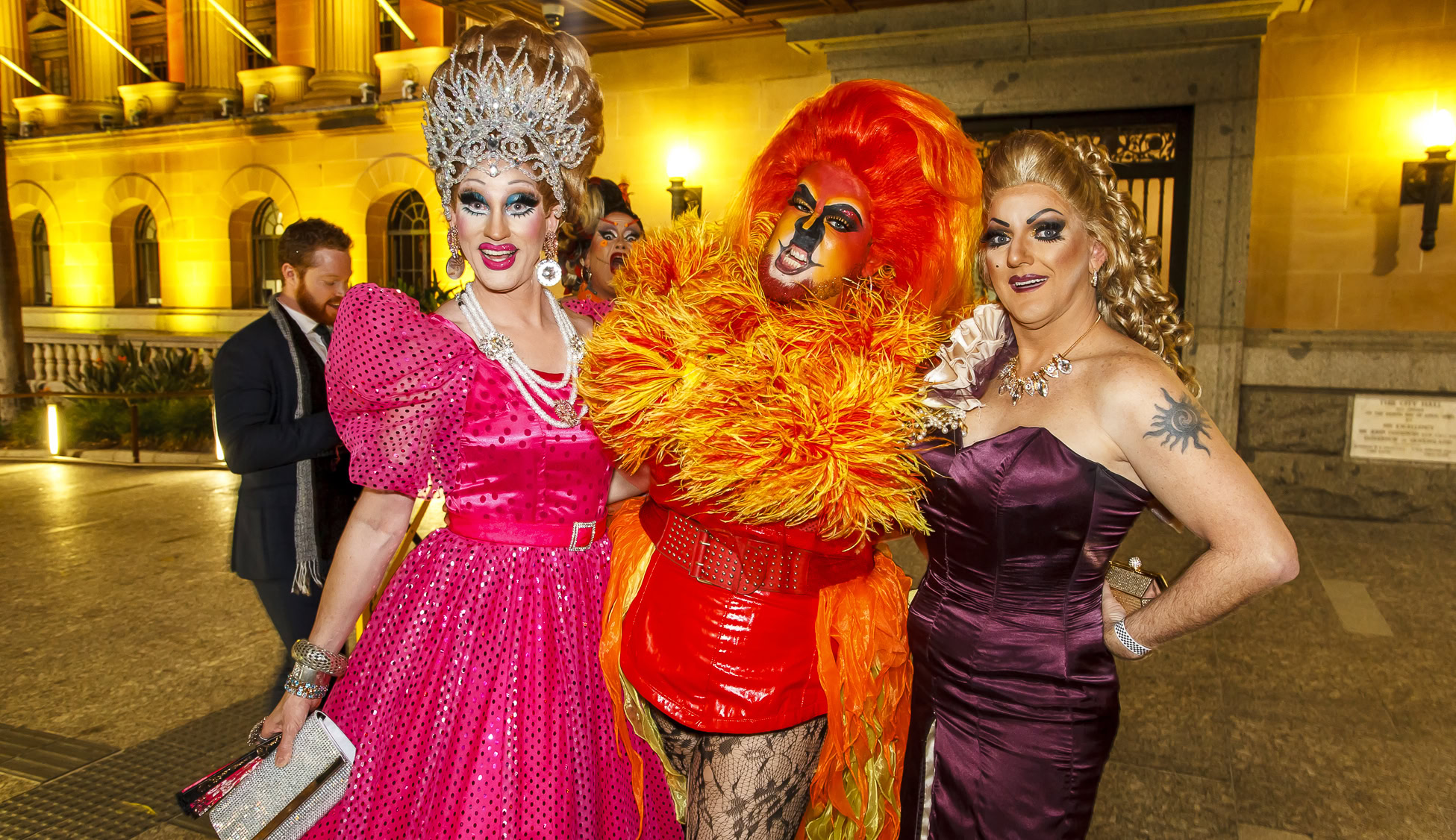
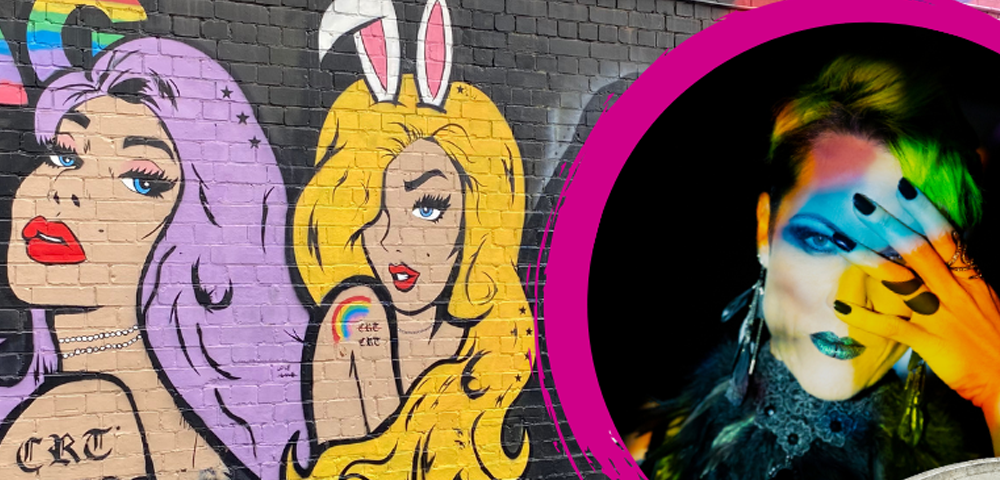
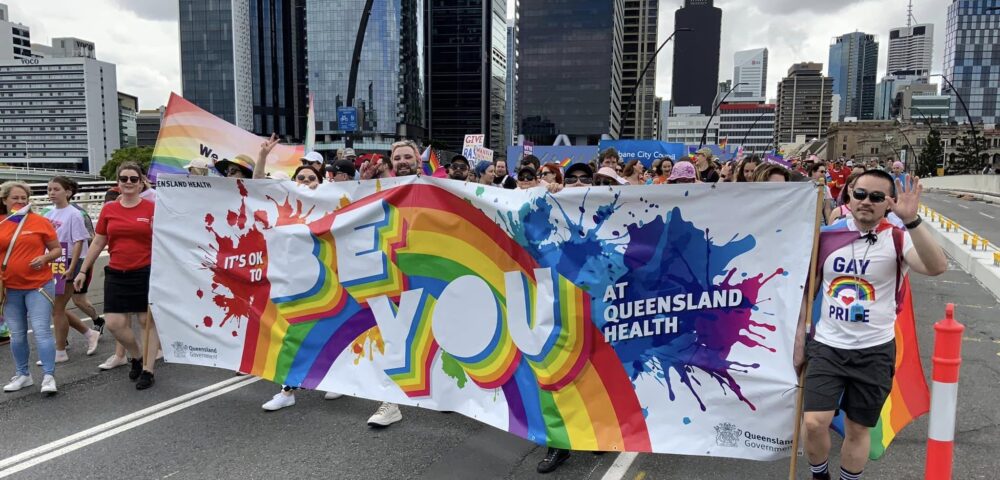

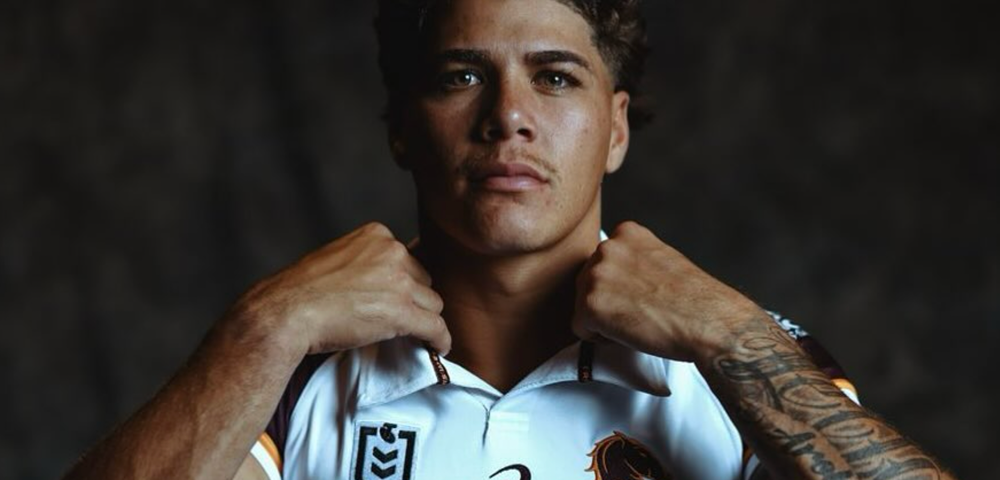
Dale, we need to talk…
If we can recognise progress in Queensland, we can also recognise the problems in the electorate of Blaxland. Too many of us are more concerned about not appearing like a News Corp thug/Hanson groupie than we are about thousands of young lesbian, gay and trans kids living in western Sydney electorates.
Blaxland is home to more recently arrived migrants – particularly people from regions of the world where homosexuality is still illegal. These are also groups more likely to claim religious affiliation/practice.
It’s not anti migrant to recognise their is an urgent need to educate new arrivals about Australian laws protecting homosexuals. More than tolerance, people coming to Australia have to know that open LGT run corporations, win Olympic medals, read the TV news…in short, Australians increasingly do not see homosexuality as somethings shameful or something to be silent about.
Is there a more urgent area needing Safe Schools than the schools in the electorate of Blaxland?
We do not need an idiotic xenophobic rant against migrants – but we cannot ignore the need to demand resources and attention be given to areas where voting No is symptomatic of a broader homophobia